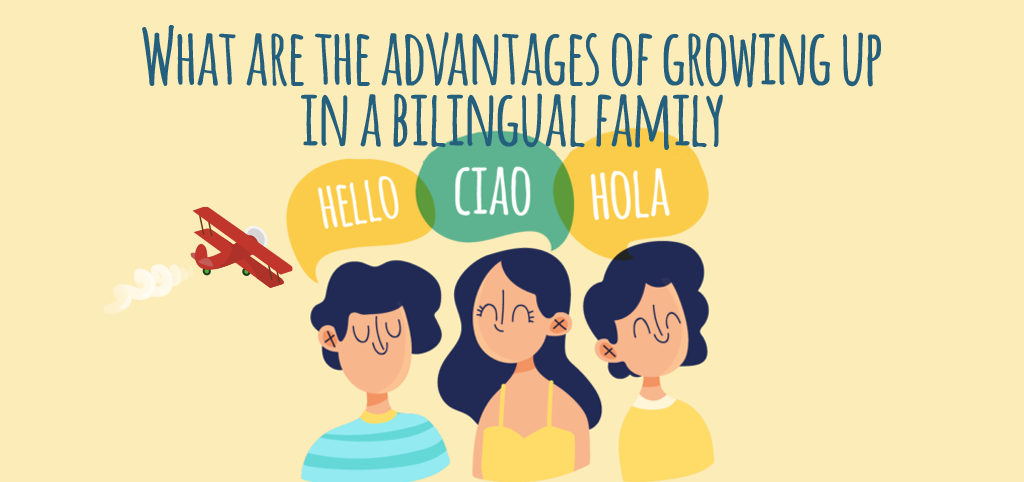What are the advantages of growing up in a bilingual family?

In many countries it often happens that children learn to speak two or more languages at the same time, to use them on a daily basis for the purpose of communicating with the people around them.
ÍNDICE DE CONTENIDOS
In nations like the United States where several languages are spoken, although there is a dominant one, English, many parents have to face the dilemma of teaching their children only in this language because it is the dominant language, or better educate them to be bilingual. But…
What does it mean to be bilingual?
It may be good to remember that being bilingual means expressing yourself correctly in two languages and conveying your thoughts clearly in both languages. On the other hand, being multilingual is the same in more than two languages.
But what happens in the US? Many people think that the official language of this country is English, because there are many countries that have an official language. But the same is not the case in the US. In this great country in 2004 around 336 languages were spoken; Although in New Mexico there are two official languages, English and Spanish, as well as in Louisiana English and French are official and in Hawaii Hawaiian and English, by this we mean that bilingualism for North Americans is nothing new.
What’s so good about being bilingual?
Studies have shown that bilingual children are more creative and tend to develop problem-solving skills much better . Also speaking the second language helps the development of cognitive skills, which will make it easier for the child to learn other languages in the future.
What are the disadvantages of not being bilingual in certain cases?
A case that occurs with some frequency is that if parents and children do not speak the same language at home, communication with each other offers difficulties. Parents may lose some control over their children and, over time, they may receive negative influences, such as those from gangs, in order to regain a sense of belonging that they no longer felt in their own home.
Should parents encourage bilingualism in their children?
Experiences say yes. So how can we help our children to be bilingual?
There are several methods, but we are going to place special emphasis on two to help a child become bilingual. In any case, all experiences tend to refer to exposing children to the influence of both languages, whatever they are, to help them understand the importance of each language.
We recommend two approaches
- The first is the focus of a parent, a language . This system requires that each parent speak a different language at home from the beginning, that is, from the birth of the child. In this case the mother could speak to the child in Spanish, while the father would use English to communicate with him.
- The second would be the minority language method at home, which consists of parents establishing a use for each language. In this case it would be that while at home the children only speak in Spanish, at school they will speak in English.
An important recommendation
The child has to remain a child , that is, when exposed to a second language, parents should not under any circumstances forget their hobbies and combine them with their languages. That is, if you like to practice a sport, it is best to watch with one of your parents the practice of that sport on one of the channels that broadcast it in Spanish. If you also like music it is best to tune in to the latest albums by artists who sing in English and in their native language, for example.
False beliefs
Doomsayers with no basis to confirm them often spread the false idea that bilingualism is a cultural loss . It is natural that if your child grows up and is educated in a country other than his country of origin , it is most likely that he will lose some of the culture and ties with that country; But it is up to you whether or not to transmit your cultural heritage to your child.
Children who learn the native language of their parents can communicate with their relatives and strengthen their family ties across borders. Also, they will most likely want to learn the history and traditions of their family’s home country. Understanding where they come from helps children develop a strong identity and helps them determine where they want to go in the future.
The education of a bilingual child
In order to teach a child to be bilingual, parents have to be aware that it is a great challenge for parents and for the child, for that reason, we must undertake the path with determination, without doubts about it, because parents who are not convinced, will not be able, under penalty of failure, to convince their children.
Parents will always keep in mind that teaching their children to be bilingual can benefit them greatly because it will help them to recognize the importance of their culture and heritage, as well as to develop a strong personal identity. Important facets that will be of great use to them at work as adults.


